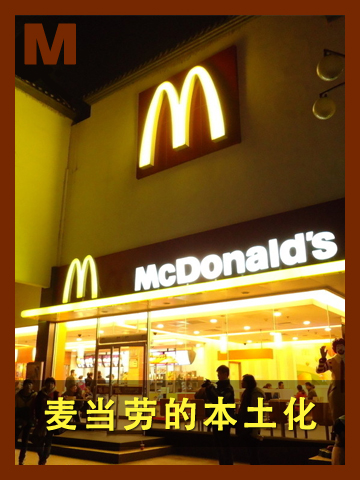2013年1月,《每日电讯报》报道了一则新闻:著名的巴黎蒙马特老城区的居民拒绝星巴克在该地区开设首家咖啡店。遗产保护组织“巴黎的骄傲”谴责这是“在蒙马特的灵魂上捅了一刀。”一位居民说:“我们必须尽一切努力阻止这种破坏行为,因为它为所有老掉牙的垃圾敞开了大门。”根据当地的说法,20年前麦当劳也曾试图在此开店,但被赶出去了。现在入侵者又回来了,只不过换了一身打扮而已。
这些遍及全球的美国餐饮企业无论选择去什么地方,总会引起当地社区的抵触,这到底是为什么呢?当然,不管何时何地,这都绝对不是一种普遍反应,否则全欧洲(包括俄罗斯在内)就不会有1700家星巴克分店和7300家麦当劳餐厅了,它们的数目甚至在经济危机时仍在不断增加。可是,这些公司多面性的影响和明显难以停止的扩张意志,多年以来已经激起了各种形式的对抗。星巴克历史学家布赖恩特•西蒙谈到过“阻拦效应”。更严重的情况则是“品牌抵制”:一名《纽约时报》记者就曾在伊拉克战争期间目睹世界各地的麦当劳餐厅成为众矢之的。
In January 2013 the Daily Telegraph ran a story on the refusal of the inhabitants of the famed old neighbourhood of Montmartre, in Paris, to accept the arrival in their midst for the first time of a Starbucks coffee shop. The Paris Pride heritage association denounced this “attack on the place’s soul.” A resident said “we must do everything to stop this disfiguring, as it opens the door to any old rubbish.” Twenty years previously, said local sources, McDonald’s had tried to open, but they had been forced out. Now the invader was back, just with a different disguise.
What is it about these world-wide American food and drink experiences which can still set off such resistance in local communities wherever they choose to land? Of course this is by no means a universal reaction, in time or place, otherwise there would not be 1,700 Starbucks shops across Europe (including Russia), or 7,300 McDonald’s restaurants, with more coming even in the crisis. But the multi-faceted power of these companies, and their apparently unstoppable will to expansion, has provoked a variety of antagonisms over the years. Starbucks’ historian, Bryant Simon, talks of “pushback”. More serious is the “brand backlash” that a New York Times correspondent saw in the targeting of McDonald’s around the world at the time of the Iraq war.
在全球化的后冷战时代,身份政治在欧洲和世界上许多其他地方兴起。正如哈佛大学著名的政治科学家斯坦利•霍夫曼所言:各国社会的(西方式)生活体系越是趋同,每个社会就越想固守自己的本国特质。在许多地方,食品成了这场斗争中一个重要的论战领域。
传统主义者和文化精英(并不总是同一群人)总爱谴责连锁店“低成本、重数量、轻质量”的理念,与此同时,世界各地的老少顾客们却纷纷涌进快餐厅;麦当劳相信,它在自己的特色和这些本土顾客的传统之间已经找到了结合点。
- 麦当劳重新归来: 当全球化变得本土化
- McDonald's revisited: when globalization goes native
- 书评 写书评
- 笔记
-
书评加载中...


















 京公网安备 11010802032529号
京公网安备 11010802032529号
笔记加载中...